- Home
- John le Carré
Our Kind of Traitor Page 5
Our Kind of Traitor Read online
Page 5
‘But within literally seconds they’re back, squatting on the edge of my towel. And one look at their faces tells me the gloomy shadows are still there, they’ve just been hiding. Right, I think: ice creams and fizzies. Perry, this is man’s work, I tell him, do your duty. Right, Perry?’
Fizzies? she repeats to herself. Why am I sounding like my bloody mother again? Because I’m another failed actress with a six-acre voice that gets louder the longer I speak.
‘Right,’ Perry agrees belatedly.
‘And off he strides to get them, don’t you? Caramel-and-nut cones for everybody, pineapple juice for the girls. But when Perry comes to sign for them, the barman tells him everything is paid for. Who by?’ – she gallops on with the same false gaiety – ‘By Vanya! By the ever-so-kind fat uncle in the tam-o’-shanter stuck up on the ladder. But Perry, being Perry, you can’t be doing with this, can you?’
Awkward shake of the elongated head to say he’s out of earshot on the cliff face, but has got the message.
‘He’s pathologically uncomfortable freeloading on someone else’s tab, aren’t you? And this is someone you don’t even know. So up the ladder Perry goes to tell Uncle Vanya, very kind of him and all that, but he prefers to pay his own way.’
She dries. With none of her desperate levity, Perry takes up the story for her:
‘I went up the ladder where Vanya was sitting on his rubber ring. I ducked under the sunshade to say my piece and found myself staring at a very large black pistol butt sticking out from under his gut. He’d unbuttoned his buckskin waistcoat in the heat, and there it was, bright as day. I don’t know guns, thank God. Don’t want to. You people do, no doubt. This one was family size,’ he says regretfully, and an eloquent silence falls as he shoots a plaintive glance at Gail and receives no answering look for his pains.
*
‘And you didn’t think to comment, Perry?’ deft little Luke suggests, ever the one to paper over gaps. ‘On the gun, I mean.’
‘No I did not. I reckoned he hadn’t seen that I’d noticed, so I decided it was tactically sensible of me not to have noticed either. I thanked him for the ice cream and went back down the ladder to where Gail was chatting to the girls.’
Luke reflects on this in a rather intense way. Something seems to have got under his skin. Could it perhaps be the tricky question of spy’s etiquette that was bothering him? What do you do if you see a chap’s gun sticking out of his waistcoat and you don’t know him very well? Tell him it’s showing, or just ignore it? Like when someone you don’t know very well hasn’t done their zip up.
The Scottish blue-stocking Yvonne decides to help Luke out of his dilemma:
‘In English, Perry?’ she asks severely. ‘You thanked him in English, I take it. Did he reply in English at all?’
‘He didn’t reply in any language. However, I did notice that he was wearing a black mourning button pinned to his waistcoat, something I hadn’t seen for a long time. And you didn’t know they existed, did you?’ he demanded accusingly.
Puzzled by his aggression, Gail shakes her head. It’s true, Perry. Guilty as charged. I didn’t know about mourning buttons and now I do, so you can get on with the story, can’t you?
‘And it didn’t occur to you to alert the hotel, for instance, Perry?’ Luke asks doggedly. ‘“There’s a Russian with a family-size gun sitting up in the lifeguard’s lookout”?’
‘Many possibilities suggested themselves, Luke, and that was no doubt one of them,’ Perry replies, his bout of aggression not yet run out. ‘But what on earth was the hotel supposed to do? There was every indication that, if Dima didn’t actually own the place, he had it in his pocket. Anyway, we had the children to consider: whether it was right to make a fuss in front of everyone. We decided it wasn’t.’
‘And the island’s police authorities? You didn’t think of them?’ – Luke again.
‘We had four more days. We didn’t intend to spend them making dramatic statements to the police about goings-on they were probably up to their necks in anyway.’
‘And that was a joint decision?’
‘It was an executive decision. Mine. I wasn’t about to march up to Gail and say, “Vanya’s got a gun stuck in his belt, d’you think we should tell the police?” – least of all in front of the girls. Once we were alone and I’d got my bearings, I told her what I’d seen. We talked it through rationally, and that was the decision we came up with: no action.’
Overtaken by an involuntary rush of loving support, Gail backs him up with her Counsel’s Opinion: ‘Maybe Vanya had a perfectly good local permit to carry the gun. What did Perry know? Maybe Vanya didn’t need a permit. Maybe the police had given him the gun in the first place. We weren’t exactly up in Antiguan gun law, were we, Perry, either of us?’
She half expects Yvonne to raise a contrary point of law, but Yvonne’s too busy consulting her copy of the offending document in its buff folder:
‘Could I trouble the two of you for a description of this Uncle Vanya, please?’ she asks in an aggression-free voice.
‘Pockmarked,’ says Gail promptly, again dazzled by how it was all there before her in her memory. Fifty-odd. Pumice-stone cheeks. A drinker’s paunch. She thought she’d seen him drinking surreptitiously from a flask at the tennis, but couldn’t be sure.
‘Rings on each finger of his right hand,’ says Perry when it’s his turn. ‘Seen collectively, a knuckleduster. Black, scarecrow hair, jutting out from the back of his hat, but I suspect he was bald on top and that was why he wore the tam-o’-shanter. Lot of blubber on him.’
And yes, Yvonne, that’s him, they agree in a shared murmur, their heads touching and the electricity flying between them as they gaze at the full-plate photograph she has slipped under their noses. Yes, that’s Vanya from Perm, second from left of four merry, overweight white men sitting in a nightclub surrounded by hookers and paper streamers and bottles of champagne on New Year’s Eve 2008 in God-knows-where.
*
Gail needs the loo. Yvonne leads her up the narrow basement stairs to the mysteriously plush ground floor. Genial Ollie without his beret is stretched out in a winged armchair, deep in a newspaper. It’s not your ordinary sort of paper, being printed in Cyrillic. Gail thinks she deciphers Novaya Gazeta but can’t be certain and doesn’t want to do him the favour of asking. Yvonne waits while Gail pees. The loo is fancy, with pretty hand towels, scented soap and hunting prints of Jorrocks on expensive wallpaper. They return downstairs. Perry remains stooped over his hands, but this time the palms are upward so he looks as though he’s reading two fortunes at once.
‘So, Gail,’ says little Luke smartly. ‘Your shout again, I think.’
Not a shout, actually, Luke. A fucking scream, one that’s been banking up in me for some while now, as I think you may have noticed in the course of resting your eyes on me a little more frequently than the spies’ Handbook of Inter-Gender Etiquette considers strictly necessary.
*
‘I simply had no idea,’ she begins, talking straight ahead of her, but favouring Yvonne over Luke. ‘I just blundered in. I should have realized. I didn’t.’
‘You’ve absolutely nothing to reproach yourself with,’ Perry retorts hotly from her side. ‘Nobody told you, nobody gave you the slightest warning. If anyone was to blame, Dima’s lot were.’
Gail is not to be consoled. She is a lawyer in a brick-lined wine cellar at dead of night, assembling the case against the accused, and the accused is herself. She is lying face down on a beach in Antigua under a sunshade in mid-afternoon with her top undone and two small girls squatting beside her and Perry is stretched out on her other side wearing his schoolboy shorts and a pair of his late father’s National Health spectacles fitted with his own prescription sunglass lenses.
The girls have eaten their free ice creams and drunk their free fruit juice. Uncle Vanya from Perm is up his ladder with the family-sized pistol in
his belt and Natasha – whose name is a challenge to Gail every time she approaches it; she has to gather herself together and make a clean jump of it like horse-riding at school – Natasha is lying the other end of the beach in splendid isolation. Elspeth meanwhile has withdrawn to a safe distance. Perhaps she knows what’s about to happen. With the hindsight she is not allowed to indulge, Gail thinks so.
The shadows are back in the girls’ faces, she notices. The professional in her fears they may share a bad secret. With the stuff she has to listen to in court most days of the week, that’s what bothers her, that’s what drives her curiosity: children who don’t chatter and aren’t naughty. Children who don’t realize they’re victims. Children who can’t look you in the eye. Children who blame themselves for the things adults do to them.
‘I ask questions for a living,’ she protests. She is saying everything to Yvonne now. Luke is a blur and Perry is outside her frame, relegated there deliberately. ‘I’ve done family courts, I’ve had children in the witness box. What we do in our work, we do out of our work. We’re not two people. We’re just us.’
In a gesture intended to ease her stress rather than his own, Perry cranes his body upwards and gives a swimmer’s stretch of his long arms, but Gail’s stress isn’t eased.
‘So the first thing I said to them was: tell me some more about Uncle Vanya. They’d been so cryptic about him I thought he might be a bad uncle. “Uncle Vanya plays the balalaika with us, we love him very much, and he’s funny when he gets drunk.” That’s Irina speaking. She’s decided to be more forthcoming than her big sister. But I’m thinking: a drunken uncle who plays music to them, what else does he play?’
‘And the language spoken still English, we take it,’ Yvonne asks, in her pursuit of every last detail. But gently now, woman to woman. ‘We’re not into basic French or anything?’
‘English was virtually their first language. Internat American English with a slight Italian accent. So then I asked, is Vanya a real uncle or just an honorary one? Answer: Vanya is our mother’s brother and he used to be married to Aunt Raïsa who lives in Sochi with another husband nobody likes. We’re doing family tree now, which is great by me. Tamara is Dima’s wife, and she’s very strict, and she prays a lot because she’s holy and she is kind to have us. Kind? Have us how? And then I say – I’m being a really clever lawyer now, asking the tangential questions, not the in-your-face ones – is Dima kind to Tamara? Is Dima kind to his boys? Meaning: is Dima a bit too kind to you? And Katya says, yes, Dima is kind to Tamara because he is her husband and her sister’s dead, and Dima is kind to Natasha because he’s her father and her mother’s dead, and to his sons because he’s their father. Which opens the door to the question I really want to ask, and I put it to Katya because she’s older: So who’s your father, Katya? And Katya says, he’s dead. And Irina joins in and says, so’s our mother. They’re both dead. I do a kind of “oh really?” and when they just look at me, I say, I’m very sad for you. How long have they been dead? I wasn’t even sure I believed them. There was a bit of me that was still hoping they were pulling some gruesome children’s trick. By now it’s Irina doing the talking and Katya who’s gone into a kind of trance. So have I, but that’s beside the point. They died on Wednesday, Irina says. A lot of emphasis on the day. As if the day’s to blame. Wednesday was when they died, whenever Wednesday was. So I say – it just gets worse and worse – you mean last Wednesday? And Irina says, yes, Wednesday a week ago, the 29th of April: very precisely, making sure I get it right. So Wednesday last week and something about a car smash, and I just sit there staring at them, and Irina takes my hand and pats it and Katya puts her head in my lap, and Perry who I’ve completely forgotten about wraps his arm round me, and I’m the only person crying.’
*
Gail has wedged the knuckle of her forefinger between her teeth, which is another thing she does in court to protect herself against unprofessional emotions.
‘Talking it over with Perry in the cabin afterwards, everything fell more or less into place,’ she says, raising her voice to give it an even more detached ring, but still keeping Perry out of her eye-line, and meanwhile trying to make it sound natural that two little girls should be having a jolly time beside the seaside a few days after their parents have been slaughtered in a car accident.
‘Their parents died on the Wednesday. The tennis match took place on the following Wednesday. Ergo, the household had mourned for a week and Dima had reckoned it was time to get them out into the fresh air: so all snap out of it and who’s for tennis? If they were Jewish, which for all we knew they may have been, or some of them were, or the dead parents were, then maybe they’d been sitting shiva, and by the Wednesday they’re supposed to be getting back into life. It hardly meshed with Tamara being Christian-holy and wearing a cross, but we weren’t talking religious consistency, not with that crowd, and Tamara was widely held to be weird.’
Yvonne again, respectful but firm: ‘I hate to press, Gail, but Irina said it was a car smash. Now is that all she said? Did she say, for instance, where the smash had happened?’
‘Outside Moscow somewhere. Vague. She blamed the roads. The roads had too many holes in them. Everyone drove in the middle of the road to avoid the holes, so naturally the cars hit each other.’
‘Was there any talk of hospitalization? Or did Mummy and Daddy die instantly? Was that the story?’
‘Dead on impact. “A great big lorry came rushing down the middle of the road and killed them dead.”’
‘Any other casualties at all, apart from the two parents?’
‘I wasn’t being awfully good at the follow-up questions, I’m afraid’ – feeling herself start to waver.
‘But was there a driver, for instance? If the driver was killed too, that would be part of the story, surely?’
Yvonne has reckoned without Perry:
‘Neither Katya nor Irina made any reference to a driver, dead or alive, direct or indirect, Yvonne,’ he says, in the slow, corrective tone he reserves for lazy students and predatory bodyguards. ‘There was no discussion of other casualties, hospitals, or what particular car anyone was driving.’ His voice is mounting. ‘Or whether there was third-party insurance cover, or –’
‘Cut,’ says Luke.
*
Gail had gone upstairs again, this time unescorted. Perry had stayed where he was, head caged in the fingers of one hand, the other tapping restively at the table. Gail returned and sat down. Perry appeared not to notice.
‘So, Perry,’ said Luke, all brisk and businesslike.
‘So what?’
‘Cricket.’
‘That wasn’t till next day.’
‘We’re aware of that. It’s in your document.’
‘Then why not read it?’
‘I think we’ve been through that, haven’t we?’
All right, it was next day, same time, same beach, different part, Perry grudgingly conceded. The same black-windowed people carrier pulled up in the NO PARKING bay, and out poured not just Elspeth, the two girls and Natasha, but the boys.
All the same, on the word ‘cricket’ Perry had begun to brighten: ‘Looking like a couple of teenaged colts who’d been locked up in the stable for too long and were finally being allowed a gallop,’ he said with sudden relish as the memory took him over.
For today’s visit to the beach, he and Gail had picked themselves a spot as far from the house called Three Chimneys as it was possible to get. They weren’t hiding from Dima and company but they’d had a rocky night of it and woken late with splitting headaches, after making the elementary mistake of drinking their complimentary rum.
‘And of course there was no escape from them,’ Gail cut in, deciding it was her turn again. ‘Not anywhere on the whole beach. Well was there, Perry? Not on the whole island, when we started to think about it. Why were the Dimas so bloody interested in us? I mean, who were they? What did th
ey want? And why us? Every time we turned a corner, there they were. We were getting to feel that. From our cabin, they were straight across the bay, peering at us. Or we imagined they were, which was just as bad. And on the beach, they didn’t even need binoculars. All they had to do was lean over the garden wall and gawp. Which no doubt they did a fair amount of, because it was only minutes after we’d pitched camp that the people carrier with black windows drove up.’
The same baby-faced bodyguard, said Perry, taking back the story. Not in the bar this time, but under a shade tree on the high ground. No Uncle Vanya from Perm with his tam-o’-shanter and family-sized revolver, but a gangly string-bean understudy who must have been some kind of fitness freak, because instead of shinning up the lookout he pranced up and down the beach timing himself and stopping each end for a bit of t’ai chi:
‘Bubble-haired chap,’ Perry said, his grin slowly stretching to its full width. ‘Kinetic. Well, manic was more like it. Couldn’t sit or stand still for five seconds. And beyond skinny. Skeletal. We put him down as a new arrival to the Dima household. We’d decided the Dimas had a high turnover of cousins from Perm.’
‘So Perry took one look at the children, didn’t you?’ Gail said. ‘The boys particularly – and you thought, Christ what do we do with this lot? Then you had your one brilliant idea of the holiday: cricket. Well, I mean, not so brilliant if you know Perry. Give him a dog-chewed ball and a bit of old driftwood and he’s lost to all non-cricketing mankind. Aren’t you?’
‘We took the game extremely seriously, as one should,’ Perry agreed, frowning unconvincingly through his smile. ‘We built a wicket out of driftwood, put twigs on top for bails, the marina people found us a bat and ball of sorts, we rounded up a clutch of Rastas and ancient Brits for the outfield, and all of a sudden we had six a side, Russia versus the rest of the world, a sporting first. I sent the boys off to persuade Natasha to come and keep wicket, but they came back saying she was reading some guy called Turgenev they pretended they’d never heard of. Our next job was imparting the sacred Laws of Cricket to’ – the smile widening into a broad grin – ‘well, some pretty lawless chaps. Not the ancient Brits or the Rastas, of course. They were cricketers born and bred. But the young Dimas were internats. They’d played a bit of baseball, but didn’t take at all kindly to being told they had to bowl a ball and not chuck it. The small girls needed a bit of handling, but once we’d got the ancient Brits batting we could use them as runners. If the girls got bored, Gail swept them off for drinks and a swim. Didn’t you?’

 The Honorable Schoolboy
The Honorable Schoolboy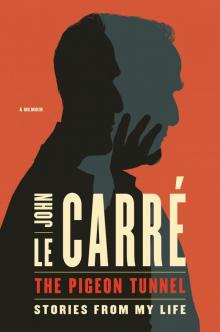 The Pigeon Tunnel: Stories From My Life
The Pigeon Tunnel: Stories From My Life Single & Single
Single & Single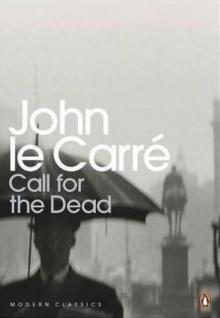 The Spy Who Came in From the Cold
The Spy Who Came in From the Cold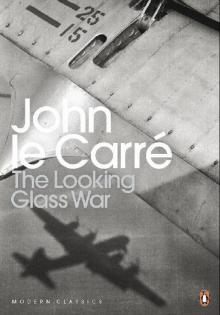 The Looking Glass War
The Looking Glass War The Night Manager
The Night Manager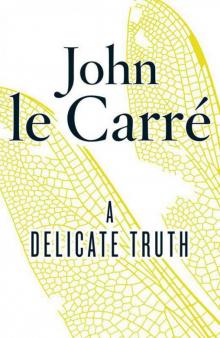 A Delicate Truth
A Delicate Truth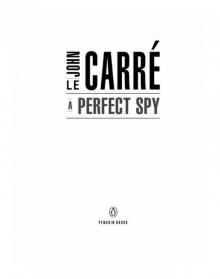 A Perfect Spy
A Perfect Spy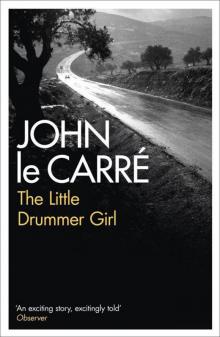 The Little Drummer Girl
The Little Drummer Girl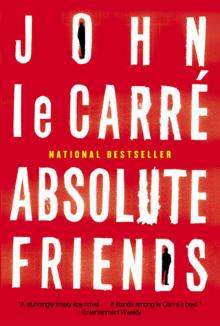 Absolute Friends
Absolute Friends A Murder of Quality AND Call for the Dead
A Murder of Quality AND Call for the Dead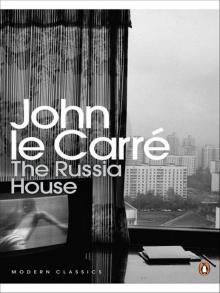 The Russia House
The Russia House The Tailor of Panama
The Tailor of Panama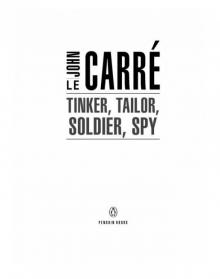 Tinker, Tailor, Soldier, Spy
Tinker, Tailor, Soldier, Spy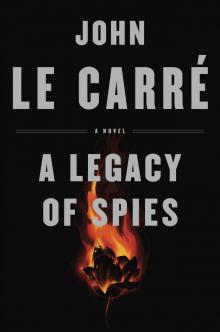 A Legacy of Spies
A Legacy of Spies The Mission Song
The Mission Song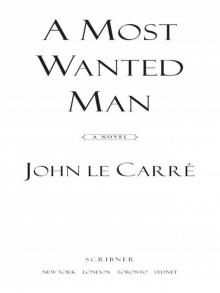 A Most Wanted Man
A Most Wanted Man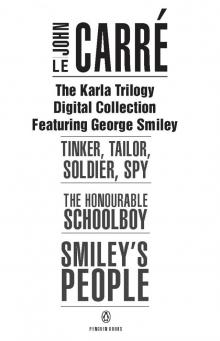 John Le Carré: Three Complete Novels
John Le Carré: Three Complete Novels The Secret Pilgrim
The Secret Pilgrim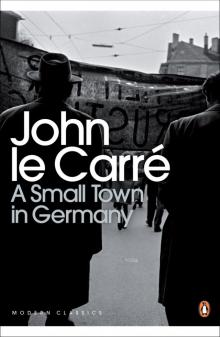 A Small Town in Germany
A Small Town in Germany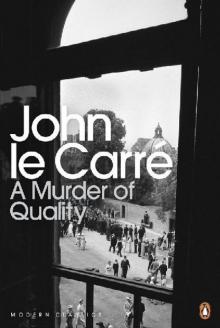 A Murder of Quality
A Murder of Quality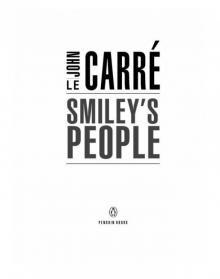 Smiley's People
Smiley's People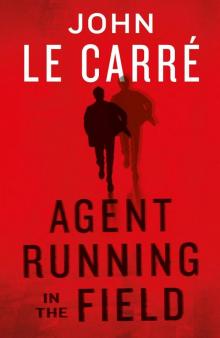 Agent Running in the Field
Agent Running in the Field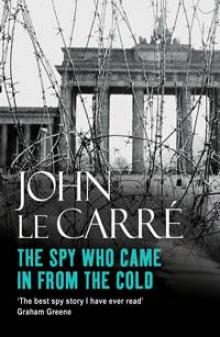 The Spy Who Came in from the Cold s-3
The Spy Who Came in from the Cold s-3 The Pigeon Tunnel
The Pigeon Tunnel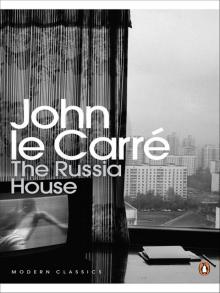 The Russia House - 13
The Russia House - 13 The Honourable Schoolboy
The Honourable Schoolboy Call For The Dead s-1
Call For The Dead s-1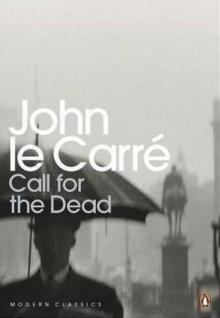 Call for the Dead
Call for the Dead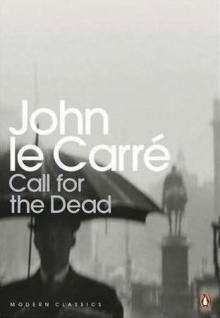 Call for the Dead - 1
Call for the Dead - 1